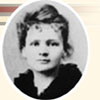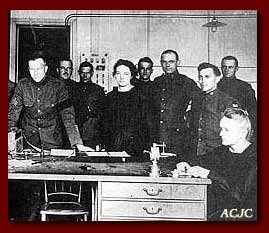

 |
|
 |
| . | X-rays on Wheels  During the rapid succession of events in August 1914, it was clearly proved that the preparation for defense was insufficient. Public feeling was especially aroused by the realization of the grave failings which appeared in the organization of the Health Service. My own attention was particularly drawn to this situation, and I soon found a field of activity which, once entered upon, absorbed the greatest part of my time and efforts until the end of the war, and even for some time thereafter.... It is well known that the X-rays offer surgeons and doctors extremely useful means for the examination of the sick and wounded.... However, at the beginning of the war, the Military Board of Health had no organization of radiology, while the civil organization was also but little developed. Radiologic installations existed in only a small number of important hospitals, and there were only a few specialists in the large cities. The numerous new hospitals that were established all over France in the first months of the war had, as a rule, no installation for the use of X-rays. To meet this need I first gathered together all the apparatus I could find in the laboratories and stores. With this equipment I established in August and September, 1914, several stations of radiology, the operation of which was assured by volunteer helpers to whom I gave instruction. These stations rendered great service during the battle of the Marne. But as they could not satisfy the needs of all the hospitals of the Paris region, I fitted up, with the help of the Red Cross, a radiologic car. It was simply a touring motor-car, arranged for the transport of a complete radiologic apparatus, together with a dynamo that was worked by the engine of the car, and furnished the electric current necessary for the production of the rays. This car could come at the call of any of the hospitals, large or small, in the surroundings of Paris. Cases of urgent need were frequent, for these hospitals had to take care of the wounded who could not be transported to more distant places. —from Autobiographical Notes pp. 208-211. From Radiology in War X rays had had only a limited usefulness up to the time of the war. The great catastrophe which was let loose upon humanity, accumulating its victims in terrifying numbers, brought up by reaction the ardent desire to save everything that could be saved and to exploit every means of sparing and protecting human life. At once there appeared an effort to make the X ray yield its maximum of service. What had seemed difficult became easy and received an immediate solution. The material and the personnel were multiplied as if by enchantment. All those who did not understand gave in or accepted; those who did not know learned; those who had been indifferent became devoted. Thus the scientific discovery achieved the conquest of its natural field of action. A similar evolution took place in radiumtherapy, or the medical application of radiations emitted by the radio elements. What are we to conclude from this unhoped-for development shared between the new radiations revealed to us by science at the end of the nineteenth century? It seems that they must make our confidence in disinterested research more alive and increase our reverence and admiration for it. —from Madame Curie p. 306. From Marie’s letters to Irène Curie
Paris, Monday, 31 August 1914
Dear Irène,
Poperinghe, 24 January 1915
Dear Irène,
Mé |
 |